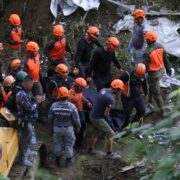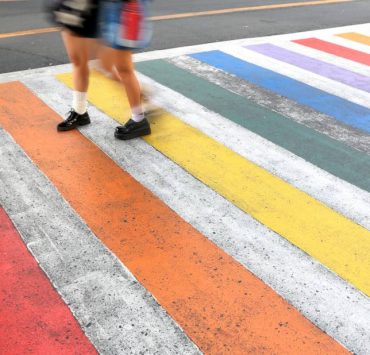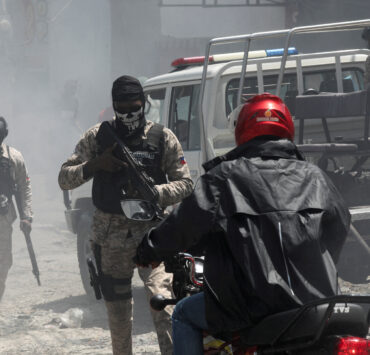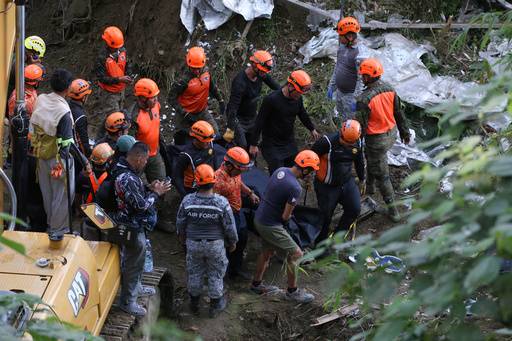Israel’s child survivors of Oct. 7 turn to music for solace
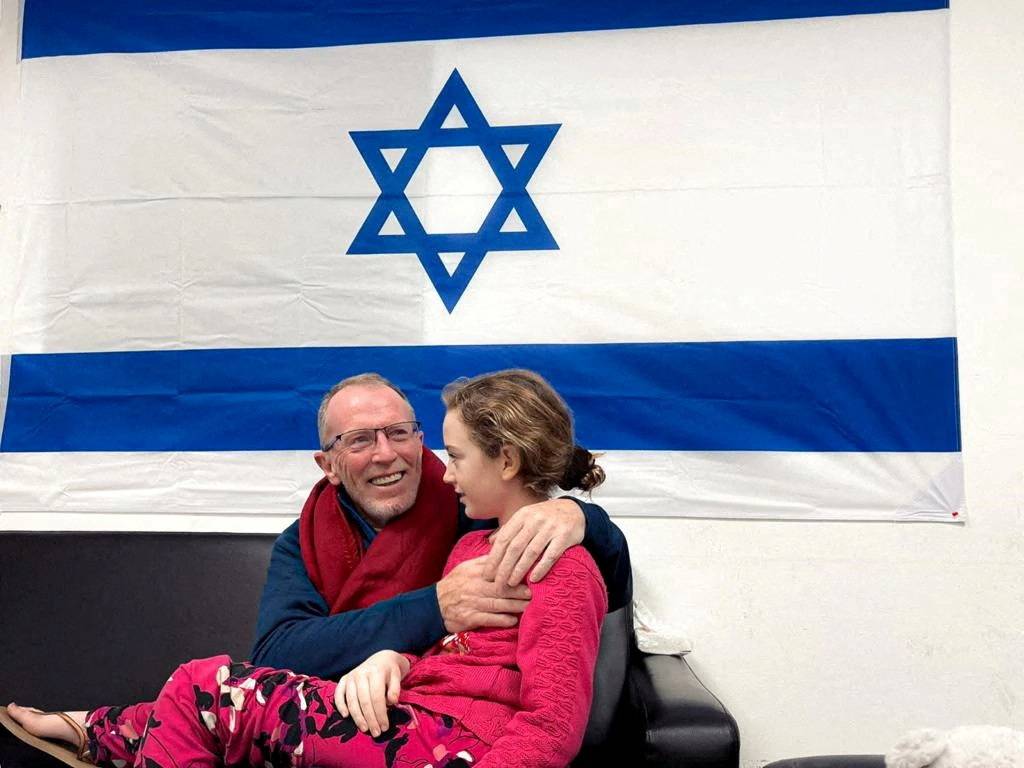
HOFIT, ISRAEL—A year after her abduction, the pain of captivity still resonates from Emily Hand’s voice as she sings, struggling with the enduring trauma of her horrific ordeal at the hands of Hamas.
“Behind my house, the sky fell. For a year, I haven’t breathed a minute. But they say the storm doesn’t hit twice, I’ve already lost fear in the field behind my house,” she sings.
The 10 year old was one of the 251 people captured on Oct. 7 by Hamas, when its fighters overran swaths of southern Israel.
After 50 days of captivity in Gaza, Hand was freed during a November truce along with her friend Hila Rotem, 13, and the latter’s mother.
But her release was just the beginning of a long road to recovery.
More than 100 hostages were also freed during that exchange, with 240 Palestinians detained by Israel released in turn.
Nearly a year later, 97 hostages remain in Gaza, 33 of whom have been declared dead by the Israeli army.
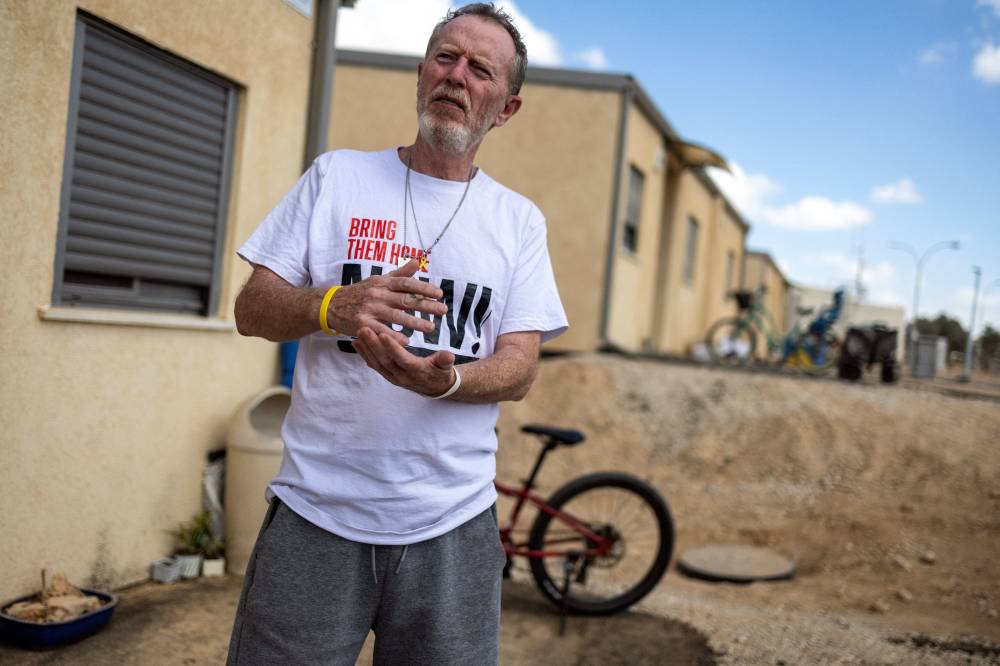
After losing her mother at the age of 2, Hand’s stepmother was killed during the Hamas attack on her home at Kibbutz Beeri.
Hand and Rotem are among several children participating in a project to commemorate the horrors of Oct. 7 and are collaborating with popular Israeli singer-songwriter Keren Peles.
At the singer’s house in Hofit, around 10 teenagers and children directly affected by the Hamas attacks came together to sing and perform.
‘Even in the darkness’
The children took turns singing with the pop star who wrote the song “In the Field Behind My House” for them.
The eldest of the budding performers in the group is Youval Sharabi, 18, whose father died in captivity, while her uncle is still believed to be alive in Gaza.
The two Sharabi brothers, Yossi and Eli were also abducted from Kibbutz Beeri. Eli’s wife and two teenage daughters were later found dead in their house and identified a week after the attack.
“Even in the darkness, your light enlightens me in the fields,” Sharabi sings before bursting into tears as Peles takes her in her arms.
The lyrics struck a chord with Sharabi.
“Everything speaks to me, it’s as if it were my story, as if she had written about me,” she said.
“This field is the one behind your house,” Peles adds.
“The uncertainty, the pain, everything related to Oct. 7 is in this song,” Sharabi told AFP.
“This waiting is no longer possible, we must release all the hostages, I am still in shock from Oct. 7, I want them to bring back my father and my uncle.”
Among the children present were the son of a police officer killed in Sderot.
There were also two daughters of a resident from Kissoufim who died defending his kibbutz on Oct. 7 and a cousin of Shiri Bibas—the mother taken with her 9-month-old baby and her 4-year-old son.
‘Untenable’
While waiting to record, Emily, Hila and two teenage girls close to hostages still in Gaza filmed themselves for a TikTok video.
Brought together by tragedy, the four young girls still found a way to sing, dance and laugh.
They wore T-shirts with photos of their loved ones along with yellow ribbons—a national symbol in Israel of solidarity with the hostages.
But the worst attack in Israel’s history continues to cast a long shadow.
On Oct. 7 last year, Hamas gunmen stormed across the Gaza border into southern Israel resulting in the deaths of 1,205 people, mostly civilians and including a number of hostages, according to an AFP tally based on official Israeli figures.
In response, Israel launched a retaliatory war in Gaza, aimed at destroying Hamas, which has killed at least 41,802 people, according to the health ministry in the Hamas-run territory.
The UN, which says the data is reliable, says most of the dead in Gaza are women and children.
Peles said she has largely lost the desire to write since the attack.
There have been exceptions, including the song “Hurricane” that was performed by Eden Golan during Eurovision and “In the Field Behind My House,” which will be broadcast on Friday evening for the first time.
Peles said the song had allowed her to give a voice to those who have lost loved ones and to give the families of the hostages hope.
“They all have to come back,” said Peles. “This situation is untenable.”
AFP is one of the world's three major news agencies, and the only European one. Its mission is to provide rapid, comprehensive, impartial and verified coverage of the news and issues that shape our daily lives.




